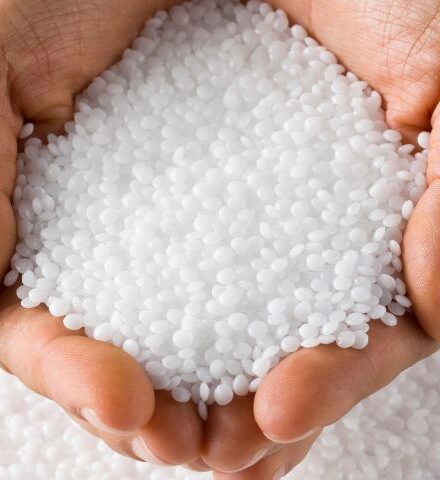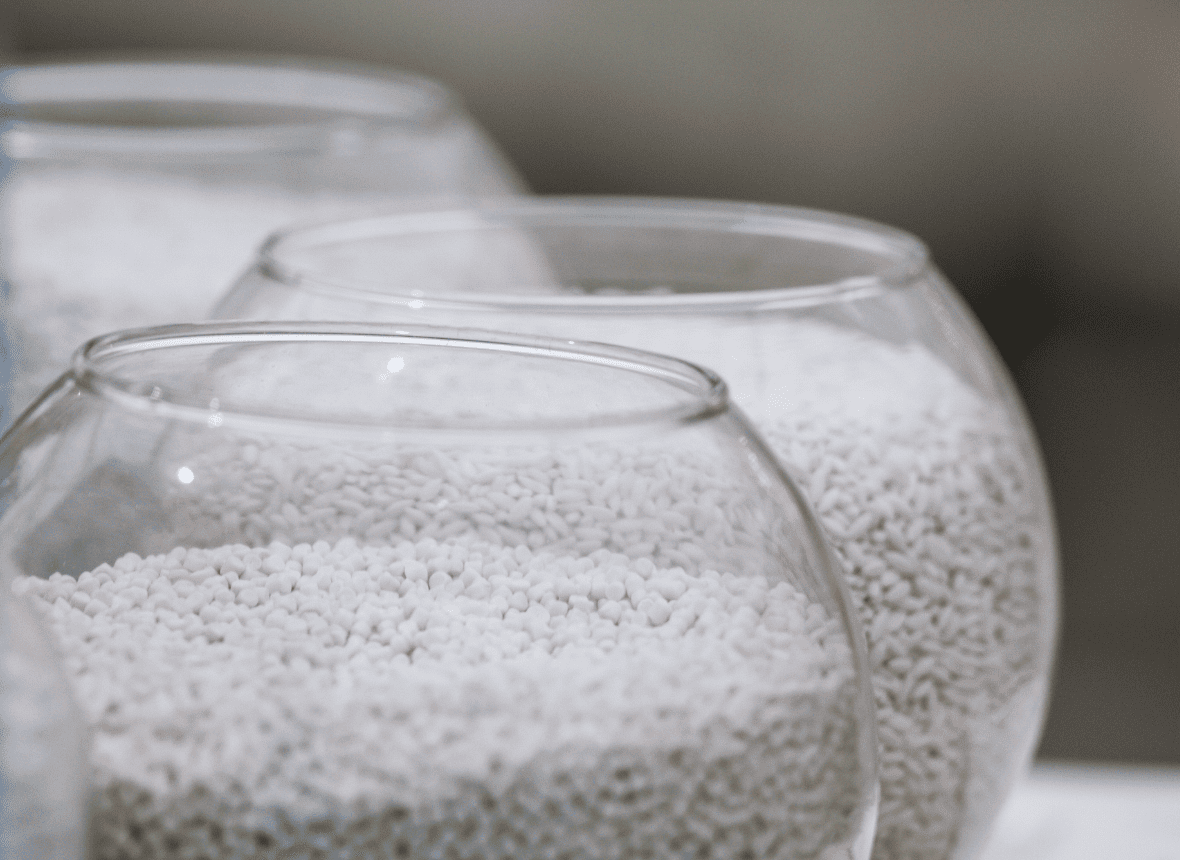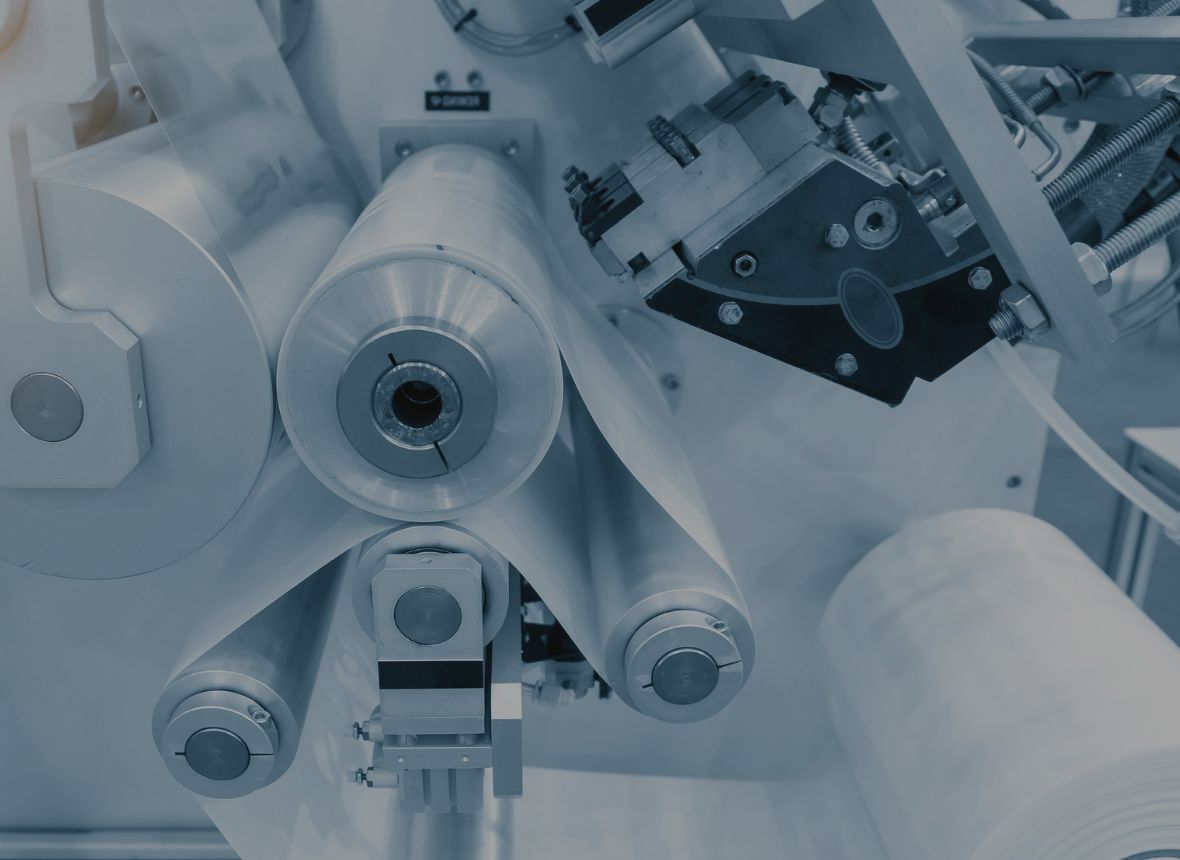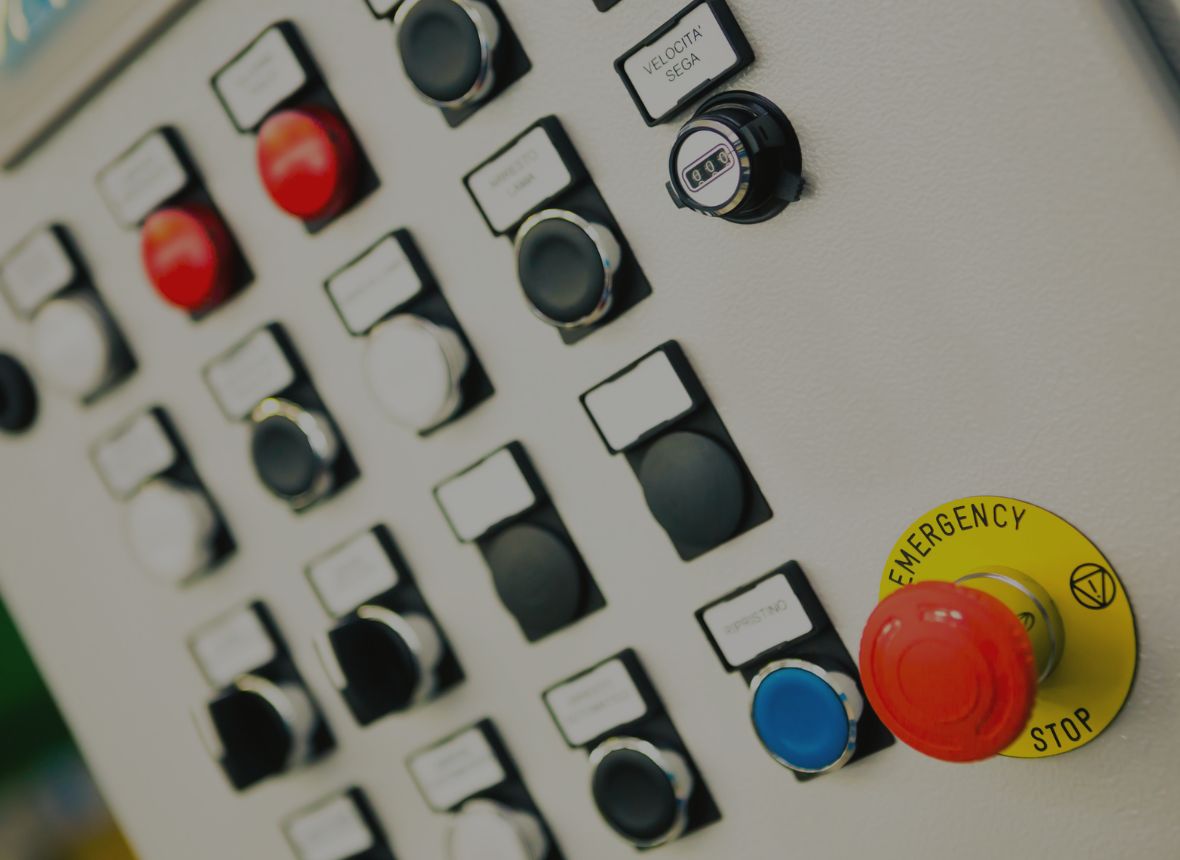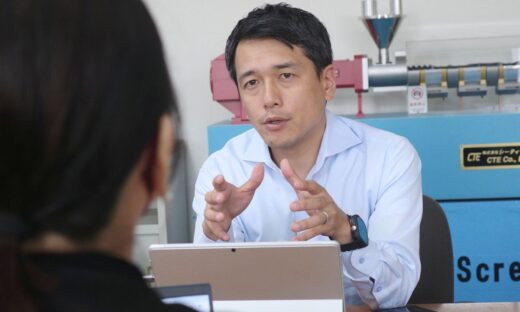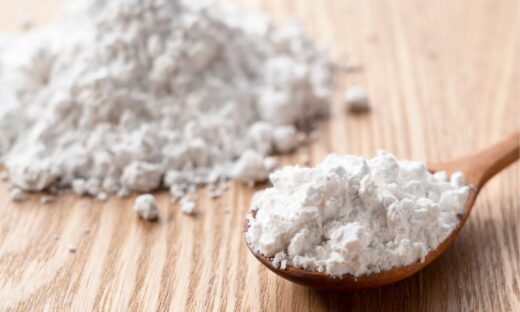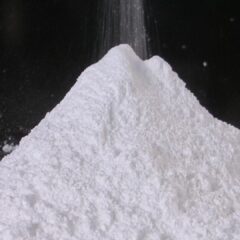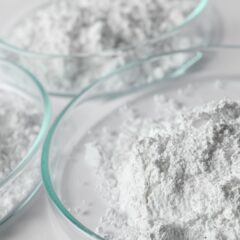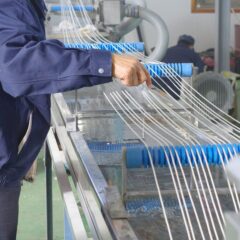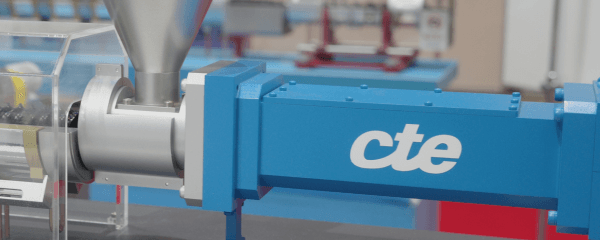Advanced Biodegradable Resin Compounding with CTE’s HTM Twin-Screw Extruder

The Importance of Heat Degradation Control in Biodegradable Resin Compounding
Maintaining product quality in biodegradable resin compounding requires minimizing heat degradation during processing. Excessive heat generated during kneading can degrade the resin, adversely affecting product performance. CTE’s HTM Twin-Screw Extruder addresses these challenges with its advanced rotor element design, offering superior dispersion and effective heat suppression for high-quality compounding.
Revolutionary Rotor Design

Non-Intermeshing, Counter-Rotating Configuration: The non-intermeshing counter-rotating configuration ensures exceptional degassing performance. This design efficiently removes moisture and gases present in resins and fillers, thereby improving product quality. Additionally, it facilitates better material intake, preventing feed-neck issues and ensuring process stability. This feature is particularly effective when processing low bulk-density materials.
Innovative Rotor Design: The HTM series incorporates a Banbury mixer-style rotor with high shear force. Unlike conventional kneading discs, this rotor design alternates between compression and decompression, significantly reducing heat generation and preventing resin degradation during mixing. This enables the efficient production of high-quality biodegradable resin compounds.
Comparison: HTM vs Conventional Extruders
Conventional Kneading Disks: Traditional twin-screw extruders utilize kneading disks for the kneading process. The shear force depends on the thickness of the kneading disk—thinner disks generate higher shear forces but are limited by mechanical strength. Resins remain under continuous high shear in a high-compression state without release, resulting in significant heat generation. This excessive heat can lead to resin degradation and negatively impact product quality.
Rotor Design of the HTM Extruder: In contrast, CTE’s HTM Twin-Screw Extruder incorporates a Banbury mixer-style rotor. This innovative design alternates compression and release by creating a gap between the rotor and the cylinder, enabling efficient kneading in a short time while suppressing heat generation. Additionally, the extruder is equipped with excellent degassing capabilities, efficiently removing moisture and gases from resins and fillers. These features contribute to stabilizing product quality and enhancing the overall manufacturing process.
MFR Comparison in Biodegradable Resin Compounding
The HTM Extruder demonstrates exceptional performance in biodegradable resin compounding (e.g., PBAT with CaCO₃). MFR (Melt Flow Rate) comparison data confirms that the HTM system suppresses MFR increases (HTM: 0.6, others: 3.3), highlighting superior heat degradation control.
.png)
Summary
CTE’s HTM Twin-Screw Extruder sets a new industry benchmark with its advanced non-intermeshing, counter-rotating design and innovative rotor configuration. By minimizing heat generation and improving degassing performance, the HTM Extruder enables high-quality biodegradable resin compounding. Its ability to maintain stable product quality while processing sustainable materials positions it as an ideal solution for recycling and environmentally friendly applications.




